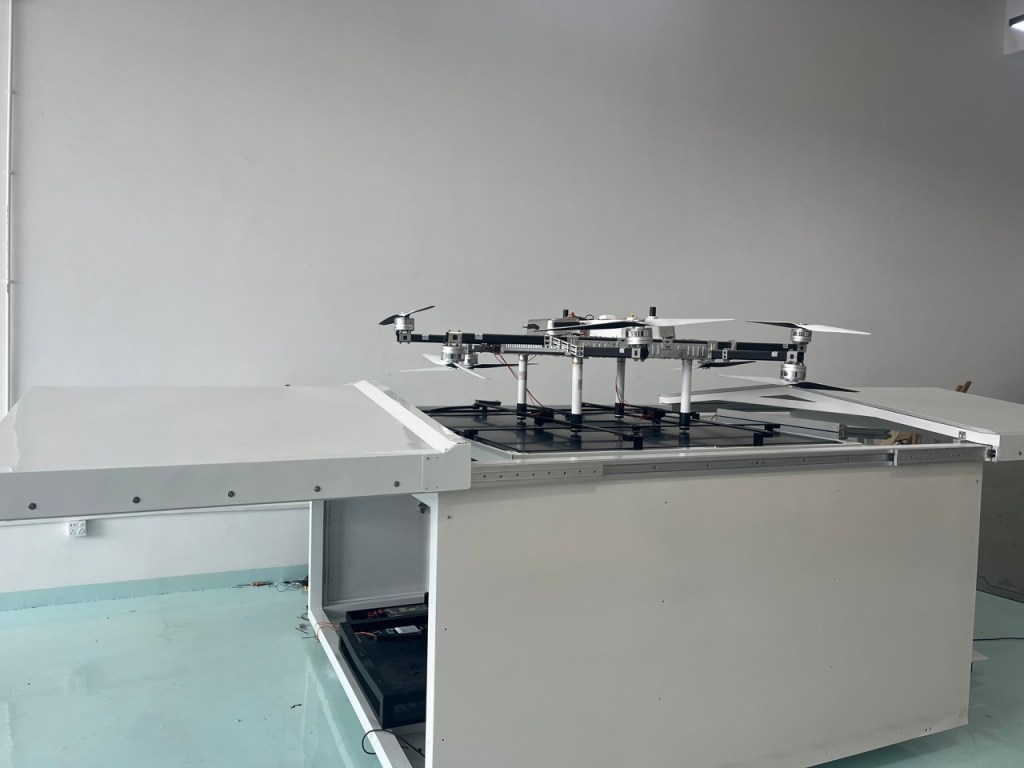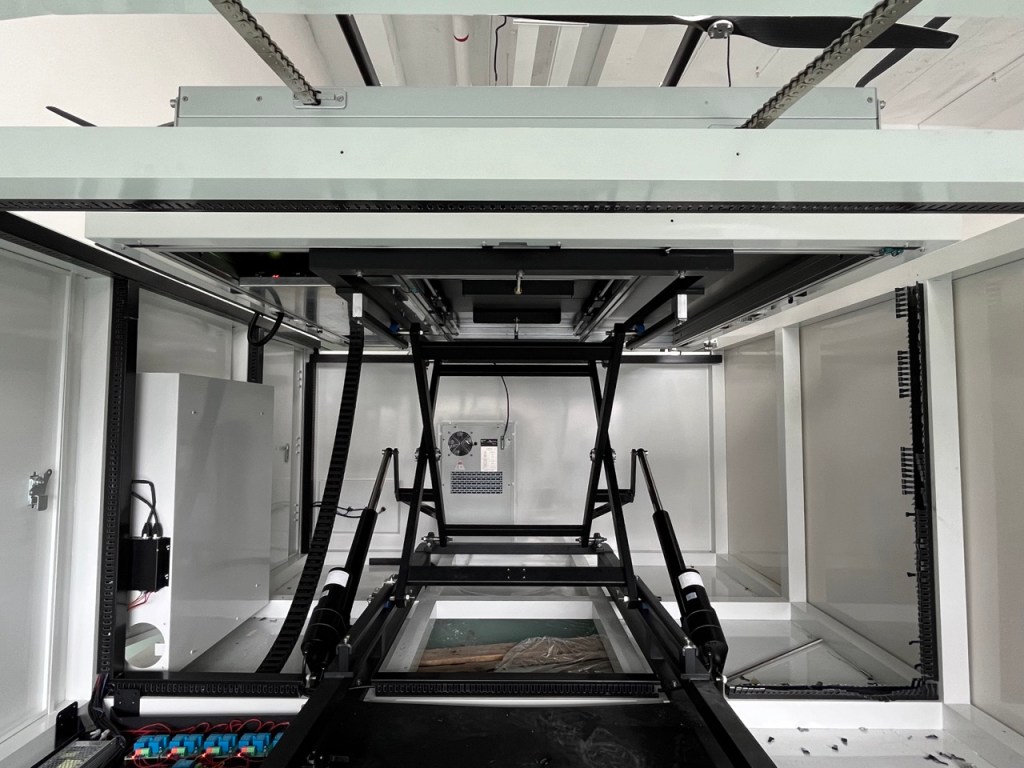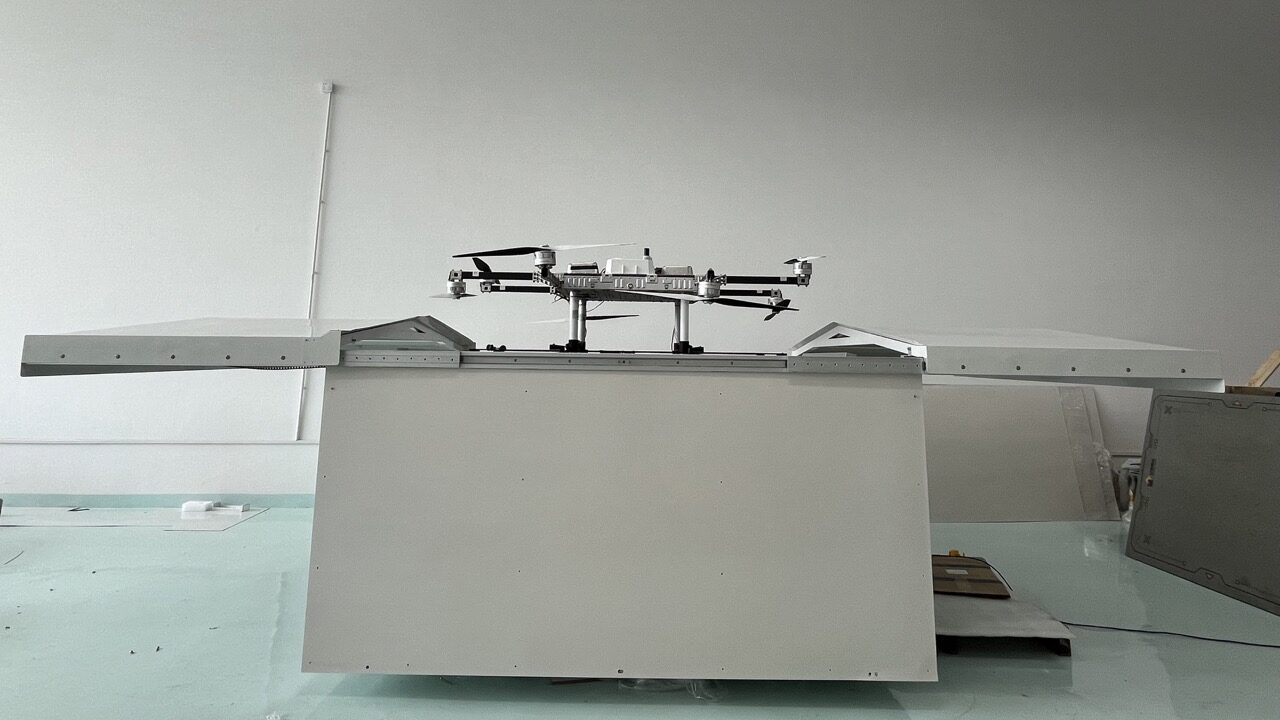HEISHA D220 autonomous delivery drone charging dock
August 28, 2024
The integration of the D220 delivery drone dock with Phoenix Wings’ ARK40 represents a significant leap forward in the world of autonomous logistics. This partnership has created a fully automated system that operates without human intervention, marking a bold move in both the logistics and drone industries.




The D220 dock is designed to seamlessly integrate with the ARK40 drone, offering an end-to-end solution for automated package delivery. Through the use of advanced flight software, the entire process—from takeoff to landing—is managed remotely. Once loaded with a package, the drone takes off and navigates autonomously to its predetermined destination. Upon arrival, it releases the package and picks up a new one, before flying to another location or returning to the dock.
Upon landing, the drone is automatically centered on the D220 charging board. Here, it initiates the charging process, ensuring it is ready for the next mission. This level of automation not only streamlines the delivery process but also reduces the need for manual intervention, increasing efficiency and reliability.
The D220 system’s compatibility with the ARK40 drone is a game-changer for the logistics industry. It allows for precise control over the drone’s movements and activities, from takeoff to package delivery and pickup. The software interface provides real-time monitoring capabilities, enabling operators to track the status of each mission and intervene if necessary.
Moreover, the D220’s robust design and high weight capacity of up to 10 kilograms mean that it can handle larger payloads, making it suitable for a wide range of applications, from small package deliveries to heavier cargo. This versatility makes it an attractive option for businesses looking to automate their logistics processes and reduce costs.
The potential impact of the D220 and ARK40 combination is far-reaching. As more companies adopt this technology, we can expect to see a disruption in traditional logistics methods. The system’s ability to operate around the clock, in various weather conditions, and without the need for human oversight sets a new standard for efficiency and reliability in the delivery sector.
